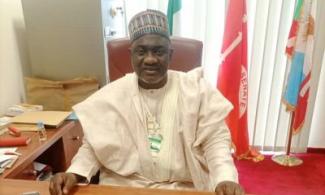
Nigeria’s public debt has surged to a staggering N142.3 trillion as of September 30, 2024, marking a 5.97% increase (N8.02 trillion) from N134.3 trillion in June of the same year. This substantial rise is indicative of the growing financial pressures on the country, with both external and domestic debt obligations contributing to the overall increase. One of the primary factors driving this sharp increase is the depreciation of the naira, which has led to a significant rise in the local currency cost of external borrowings.
The Debt Management Office (DMO) revealed that while external debt in dollar terms rose modestly by 0.29%, from $42.90 billion in June to $43.03 billion in September, the same debt in naira terms experienced a much more dramatic 9.22% increase, escalating from N63.07 trillion to N68.89 trillion over the quarter. This spike can be attributed to the naira’s depreciation, which weakened from N1,470.19/$ in June to N1,601.03/$ by the end of September, amplifying the cost of external debt repayments.
On the domestic front, Nigeria’s debt load showed a contrasting trend. Domestic debt in dollar terms decreased by 5.34%, from $48.45 billion to $45.87 billion, but in naira terms, it climbed by 3.10%, rising from N71.22 trillion to N73.43 trillion.
The Nigerian Government’s domestic debt, which constitutes a large portion of the total debt stock, increased from N66.96 trillion to N69.22 trillion during the same period. This uptick in domestic debt reflects the government’s increased reliance on local borrowing to meet fiscal obligations, particularly through bond issuances and promissory notes.
A closer look at the domestic debt profile reveals that Nigerian Government bonds remain the largest component, growing by 4.47% to N54.65 trillion. These bonds now account for 78.95% of Nigeria’s total domestic debt, up from 78.13% in the previous quarter. The introduction of the country’s first-ever domestic dollar-denominated bond, which added N1.47 trillion to the domestic debt, has also played a role in this increase.
Meanwhile, Nigeria’s Treasury Bills, the second-largest component, saw a slight reduction of 0.66%, falling from N11.81 trillion to N11.73 trillion, reflecting the government’s efforts to reduce short-term borrowing in response to rising interest rates. In contrast, promissory notes, which the government uses to settle obligations such as contractor payments, grew by 5.80%, reaching N1.77 trillion. This increase included foreign-denominated promissory notes, which rose slightly due to currency fluctuations.
Notably, FGN Sukuk, an instrument used primarily for infrastructure funding, experienced a decrease of 9.14%, dropping from N1.09 trillion to N992.56 billion. On the other hand, FGN Savings Bonds, a retail investment vehicle, saw a significant rise of 16.11%, growing from N55.20 billion to N64.09 billion as more retail investors showed interest in these savings options.
The growing domestic debt, particularly in the form of long-term bonds, has raised concerns over the sustainability of Nigeria’s borrowing practices. Experts warn that the country’s increasing dependence on domestic borrowing to finance its budget deficits, especially given the pressure on foreign exchange reserves and limited external borrowing options, may pose risks to long-term fiscal health. Dr. Muda Yusuf, CEO of the Centre for the Promotion of Private Enterprise, has cautioned that Nigeria could fall into a “debt trap” if the growth of public debt is not carefully managed.
Despite the growing concerns over Nigeria’s mounting debt, the government’s external debt profile remained relatively stable in dollar terms. Multilateral debt, which comprises loans from institutions like the World Bank, saw a slight increase of 0.67%, primarily due to additional disbursements from the International Development Association (IDA). Bilateral loans, notably from China, decreased marginally by 1.33%, while commercial loans, which include Eurobonds, remained unchanged at $15.12 billion, making up 35.14% of the total external debt.
The government also managed to raise $2.2 billion through a Eurobond auction in December 2024, which will contribute to funding the country’s fiscal deficit. This move is part of Nigeria’s strategy to tap international capital markets to address its growing fiscal shortfall. The funds raised will help support Nigeria’s 2024 budget, which is under strain due to persistent revenue shortfalls and mounting public spending.
The depreciation of the naira, which has worsened the debt burden, particularly in external obligations, continues to be a critical issue. Analysts argue that Nigeria must address the growing debt burden while also pursuing measures to increase revenue generation to fund critical infrastructure projects and promote economic growth. The Minister of Budget and Economic Planning, Abubakar Bagudu, has reiterated the government’s commitment to improving revenue mobilization, emphasizing the importance of boosting sectors such as petroleum, solid minerals, and the creative industries to increase national income. The government has also focused on tackling oil theft and boosting crude oil production to help bridge the fiscal gap.
Furthermore, Bagudu stressed the importance of tax reforms and other strategies to increase government revenue, with the aim of achieving an 18% revenue-to-GDP ratio. The government also plans to fund critical infrastructure, including housing, roads, and railways, through initiatives such as the Renewed Hope Infrastructure Fund and other targeted schemes.





